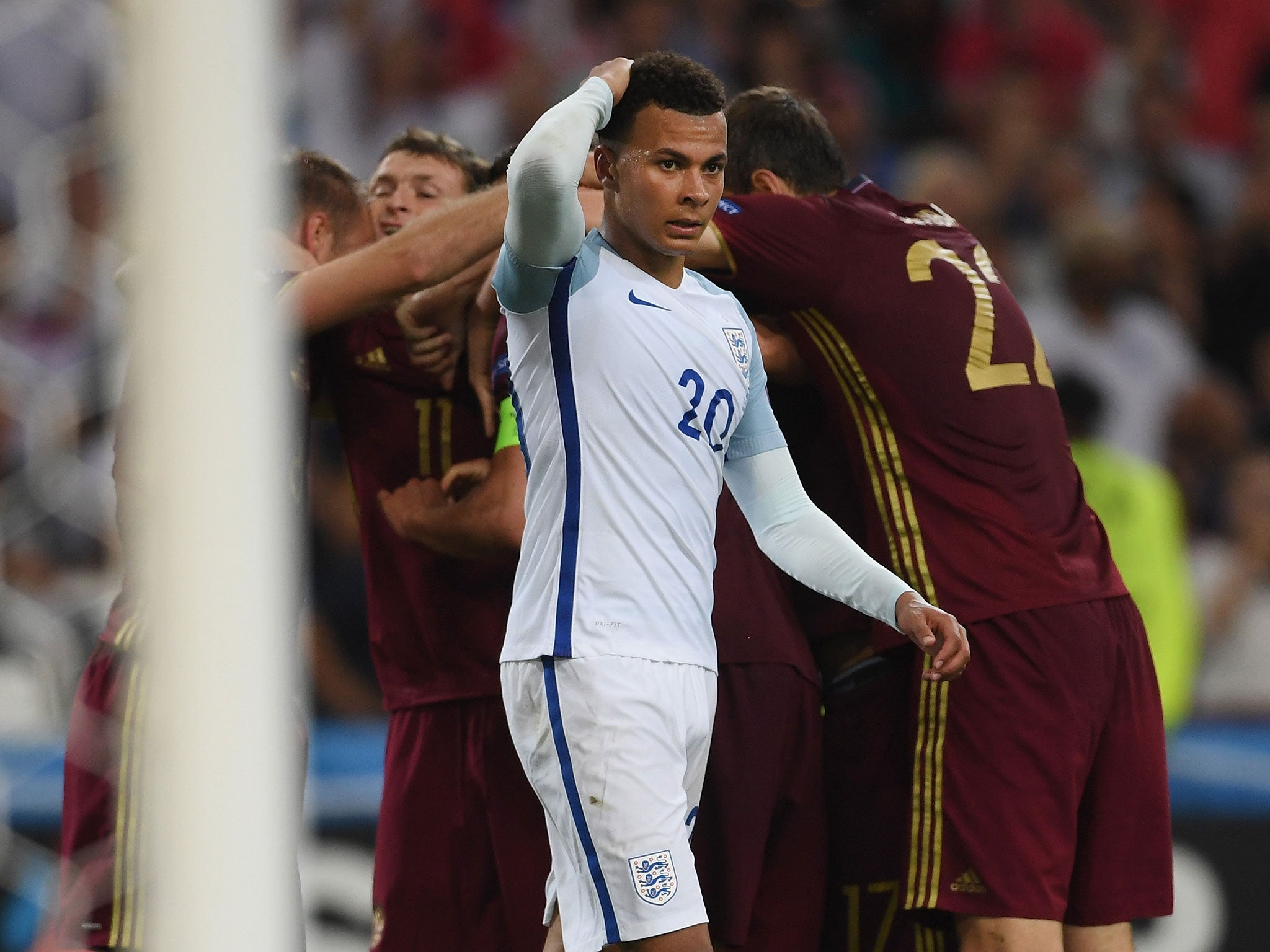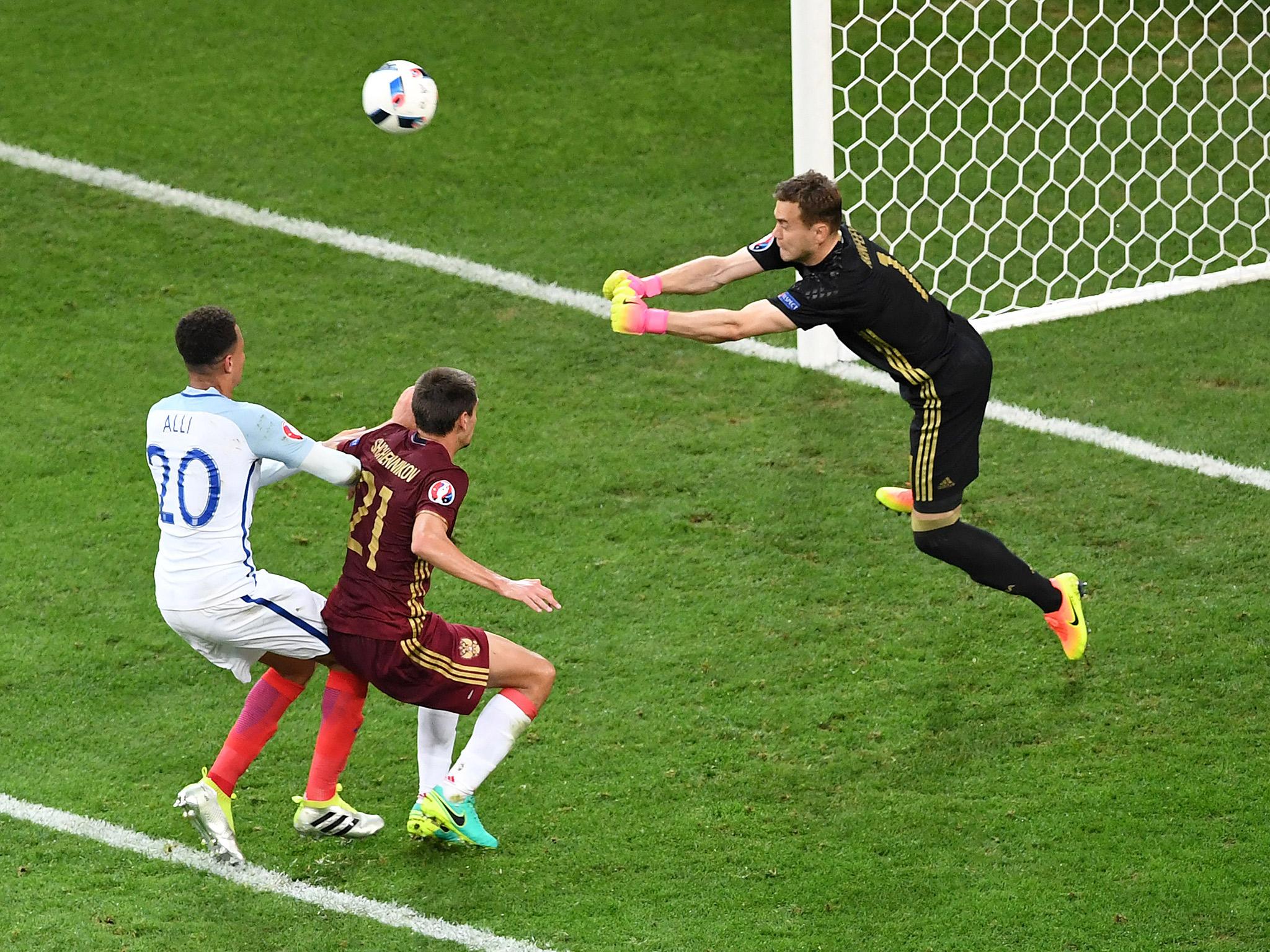Euro 2016: 10 things we learnt from the first round including why expansion to 24 teams is good for European football
Age and size be no barrier, and referees should be credited for a strong start

Your support helps us to tell the story
From reproductive rights to climate change to Big Tech, The Independent is on the ground when the story is developing. Whether it's investigating the financials of Elon Musk's pro-Trump PAC or producing our latest documentary, 'The A Word', which shines a light on the American women fighting for reproductive rights, we know how important it is to parse out the facts from the messaging.
At such a critical moment in US history, we need reporters on the ground. Your donation allows us to keep sending journalists to speak to both sides of the story.
The Independent is trusted by Americans across the entire political spectrum. And unlike many other quality news outlets, we choose not to lock Americans out of our reporting and analysis with paywalls. We believe quality journalism should be available to everyone, paid for by those who can afford it.
Your support makes all the difference.1. Expansion works
This view may change as the tournament progresses and fatigue sets in, but on the evidence of the first week expansion to 24 teams has been a success. The newcomers and supposed makeweights have all made a contribution, especially Wales, Iceland and Hungary, with none of the four teams who came through the play-offs - Hungary, Republic of Ireland, Sweden and Ukraine - looking out of place.
2. Levelling of standards
Expansion is working partly because there has been a levelling of standards. Every single game in the opening phase was in the balance, with no more than a goal in it, as it entered the last five minutes. Three teams - Germany, Italy, Hungary - went on to win by two goals but that was through counter-attacking as opponents pushed forward. The drift of quality players towards the big leagues has improved the standard of the smaller teams while the traditional powerhouses all seem to have faults - perhaps related to the ever-increasing year-round emotional and physical demands on their players.
3. International football suits some players
Some of the best performances have come from players who have been struggling to make an impact with their clubs. Lazslo Kleinheisler was outstanding for Hungary - yet made only six appearances for Werder Bremen last season. Jonny Williams made 15 starts last year, on loan to Championship clubs Nottingham Forest and MK Dons, but shone for Wales. “He loves international football,” said manager Chris Coleman. “He understands what we need and want and delivers.” There are shades here, of Greece, winners in 2004, several of whose players had poor club seasons. Maybe it is the confidence of playing for a manager who believes in you, maybe it is being fresh after an undemanding season.
4. Referees are doing well
One thing has been missing this tournament - a refreshing lack of referee-related controversy with the standard definitely better than the World Cup (probably because all refs are from Europe). So far refs have allowed matches to flow while still, by and large, protecting talented players. Arguably there could have been a few more yellow cards but most decisions have been correct. There seems to be less simulation and, perhaps because of the much-maligned officials behind the goal, less penalty-area grappling too.
5. Ex-PL youngsters are prospering
Some vaguely familiar faces have been cropping up unexpectedly, a consequence of Premier League clubs’ dragnet fishing of youthful prospects in the hope of finding a jewel. Zoltan Stieber, Hungary’s second goalscorer, spent four years at Villa as a youngster but only played for Yeovil on loan, team-mates Kristian Nemeth and Tamas Kadar spent years in their youth at Liverpool (but only played on loan to Blackpool) and Newcastle (14 matches) respectively. Then there’s Turkey’s Oguzhan Ozyakup (two games for Arsenal), Sweden’s John Guidetti and Slovakia’s Vladimir Weiss (both ex-Man City, one and five appearances respectively) and others. None of these players are reaching the heights of ex-Manchester United trainees Gerard Pique and Paul Pogba, but they are proof there is life after the Premier League rejection.
6. Non-scoring centre-forwards
The centre-forward is the goalscorer, right? Not necessarily. Several teams are deploying centre-forwards as line-leading space creators with any goal they score a bonus. Two examples are Hungary’s Adam Szalai and Wales’ Hal Robson-Kanu. As it happens, both have scored, but it was Szalai’s first goal for anyone in 18 months and Robson-Kanu’s third in 31 internationals. Slovakia’s Michael Duris and Ukraine’s Roman Zozulya (both four goals in 27 internationals after the opening round) will hope to follow suit.
7. Italy remain the defensive masters
Clichés and stereotypes are usually based in fact and Italy’s defensive excellence is one of them. The fashion, led by Barcelona and enthusiastically adopted by the Premier League’s academy system, is for ball-playing central defenders but tournaments are often won by the team with the most secure defence rather than the most creative one. Italy’s defensive excellence, both in terms of collective tactics and individuals, could take them much further than anticipated. However, Chelsea fans should not expect similar masterclasses next season, unless Antonio Conte buys Italian defenders.
8. Football fever still eludes France
Covering the 1998 World Cup it was evident that France was not a ‘football country’ in the way Spain, Italy, Germany and the UK are. It was only when Les Bleus looked like winning the bandwagon got rolling. While France has plenty else to worry about at present, with labour unrest and terrorism, plus hooliganism, nothing seems to have changed. TV shows the matches, but little supporting programming, sports paper L’Equipe aside the press are only moderately interested, and when there is a clash bars are as likely to show rugby as Euro 16 matches. The streets are even busy while France are playing.
9. Football remains a game for all sizes
Some sports, basketball and rugby in particular, are increasingly restricted to players of specific physique, football remains the everyman’s game (barring, these days, the overweight). One of the best saves this tournament was made by Igor Akinfeev (from Wayne Rooney), at just over six foot among the smallest keepers here. Little Jonny Williams was a menace to strapping Martin Skrtel while the similarly diminutive Andres Iniesta produced a typically brilliant display. But the strapping Vasili Berezutski used his size to save a point for Russia.

10. If you are good enough you are still old - or young enough.
Similarly, age need not be a barrier. Gabor Kiraly, at 40, kept a clean sheet including one outstanding save for Russia with 37-year-old Zoltan Gera also rolling back the years in Hungary’s midfield. At the other end of the age scale Poland’s Bartosz Kapustka, 19, looks a star in the making and the majority of England’s youngsters impressed in Marseilles.
Join our commenting forum
Join thought-provoking conversations, follow other Independent readers and see their replies
Comments